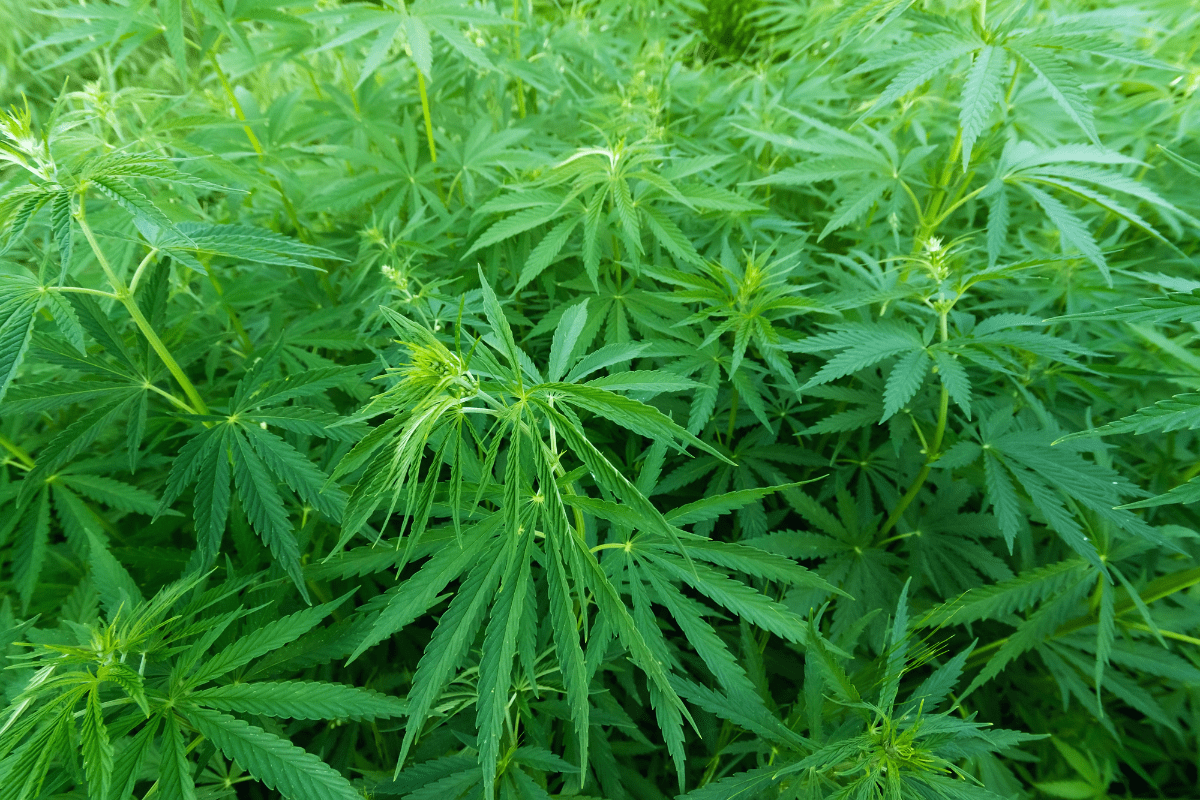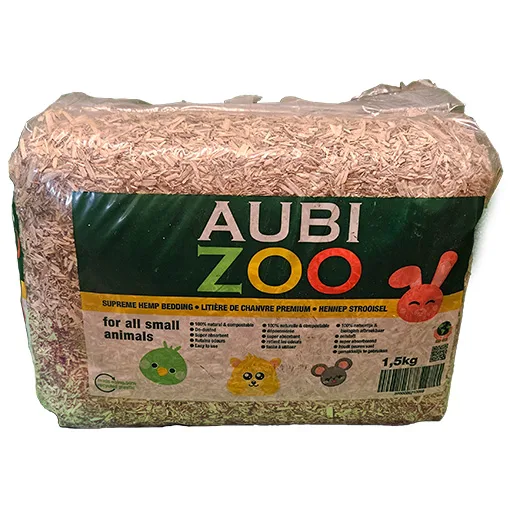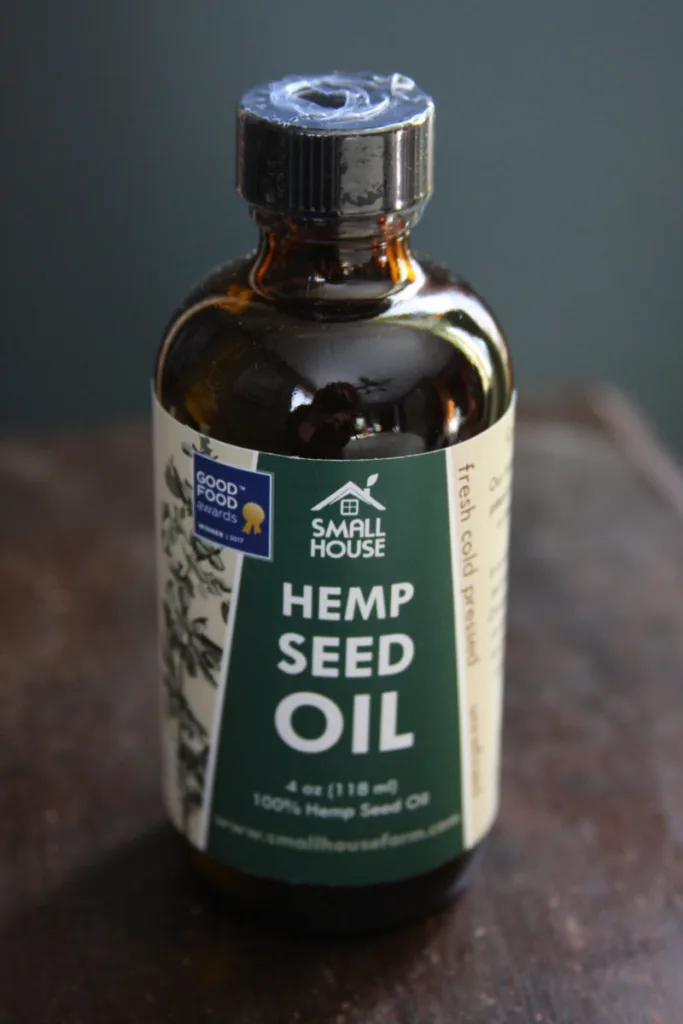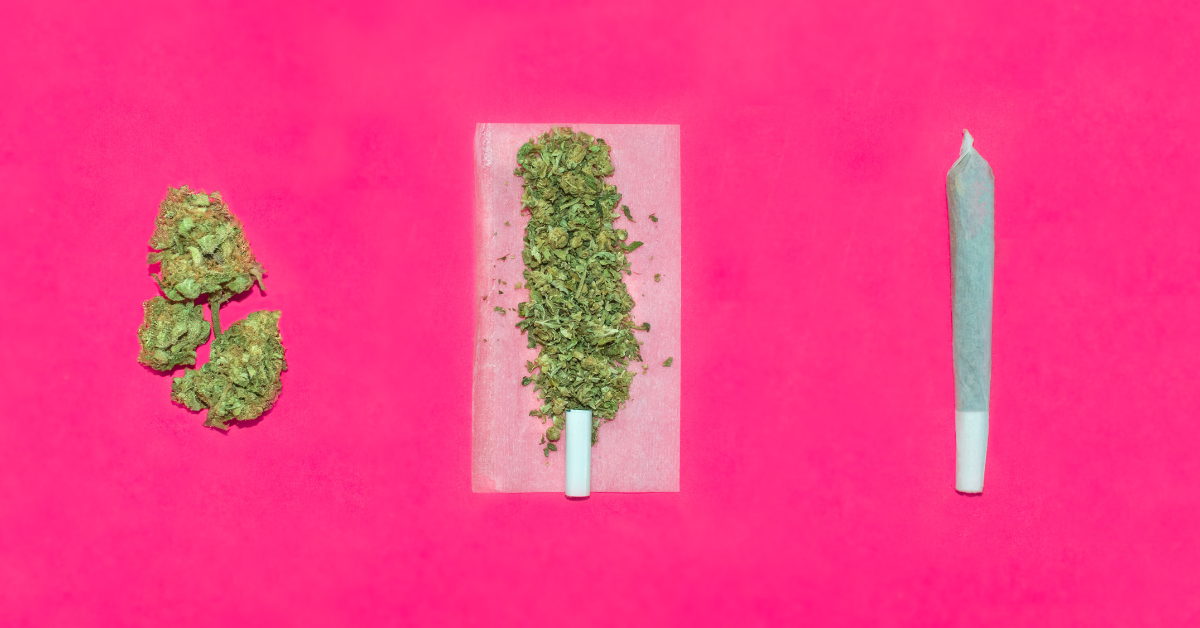
(Image via Canva)
Hemp is having a moment in Michigan—again.
MICHIGAN—Hemp’s harvest holds yet another growth spurt for Michigan’s economy—now that it’s less misunderstood.
Hemp is like the estranged cousin in the cannabis family. It’s a part of the same plant species we know marijuana for, but hemp has no psychoactive compounds and very different uses.
Hemp actually has ancient roots, biblical references, and, ultimately, a rich history weaving the ropes and sails of mariners in the Great Lakes.
But decades ago, Michigan farmers faced life-changing declines in their profits as emerging regulations treated hemp as a dangerous drug.
These days, hemp is the comeback crop for local farmers, which is, in turn, sparking growth in other industries.
So today, we’re making our way through Michigan’s seven little-known but longtime uses for hemp and some fun trivia that captures just how hip ‘Ganders were to hemp all along.
SIDEBAR: 3 laws that changed how we use hemp in Michigan
- In 1937, the United States passed the Marihuana Tax Act, slapping heavy regulations and taxes on all things cannabis, including innocent ol’ hemp.
- The confusion between hemp and marijuana continued to fuel the fire of regulation. In 1970, the Controlled Substances Act placed marijuana in the same category as hardcore drugs. Hemp got lumped in there, too, even though it lacks THC, which gives marijuana its high.
- As more farmers, voters, and communities gave voice to the ways hemp is a crop with countless uses, the 2014 and 2018 Farm Bills recognized hemp’s potential in the future and paved the way for its legal cultivation and production now.
1. Paper
Hemp paper is strong, acid-free, and can be recycled more times than traditional paper.

(Image via PureHemp Technology)
Michigan trivia: During the early days of settlement in Michigan, hemp played an integral role in shaping the state’s economy, with paper being one of its original commercial uses. By the 19th century, local farmers recognized its potential and began cultivating it on a large scale.
Today’s take: In 2019, a Michigan paper mill began converting hemp stalks from Colorado into rolls of hemp paper—marking a significant achievement for PureHemp Technology, an industrial hemp processor and spurring our local economy.
2. Fiber
Hemp fabric is breathable, hypoallergenic, and resistant to mold and bacteria.

(Image via Canva)
Michigan trivia: Hemp became a symbol of innovation in Michigan during the Industrial Revolution. Leading into the turbulent times of World War II, Michigan’s hemp industry experienced another surge supplying troops in World War II with essential hemp-based products like uniforms and rope.
Today’s take: Midland’s Hemp Craft Company is Michigan’s one-stop shop for all things made with hemp. Busting myths and offering lifestyle products like clothes and accessories, their tagline is, “…we focus on getting people healthy, not high.”
3. Industrial and automotive applications
Hemp fibers make lightweight yet strong industrial materials like composite panels, plastics, and car parts.
1941 Ford automobile called the Soybean Car. (Image via Wikimedia Commons)
Michigan trivia: In 1941, Henry Ford unveiled his groundbreaking “soybean car,” which marked the auto industry’s first utilization of hemp. This innovative vehicle showcased the durability and versatility of hemp plastic body panels, a significant milestone in automotive history.
Today’s take: In 2020, a sustainable manufacturer chose Michigan to create the process for new automotive-grade hemp car parts, working with 26 local farms to make the largest hemp supply chain in the world. They say 15 pounds of hemp parts could replace 50 pounds of glass fiber in the Ford Explorer.
4. Sustainable living materials

(Image via Down on the Farm)
Hemp is highly absorbent, helps control odor, and is biodegradable. It’s an excellent material for many uses, including animal bedding.
Michigan trivia: Changing regulations and misconceptions about hemp’s relation to marijuana in the 20th Century led to its prohibition and eventual disappearance from Michigan’s agricultural landscape. But it’s making a strong re-emergence in the 21st Century.
Today’s take: Michigan farmer Blain Becktold—former County Executive Director of the USDA Farm Service Agency—co-founded iHemp Michigan in 2019 to re-introduce industrial hemp to his fellow farmers. He now makes hemp seed oil, hemp protein flour, hemp protein cake, and hemp hearts through Down on the Farm. The company also helps farmers get into the hemp industry.
5. Construction
Hemp fibers make a variety of eco-friendly construction materials like hempcrete, a mixture of hemp hurds, lime, and water.

(Image via Fiber Fort)
Michigan trivia: All that governmental fuss around hemp? Well, there were economic and political factors at play, too. Big-time industries like cotton and timber didn’t want hemp stealing their thunder. They saw it as competition and lobbied hard to keep it down, diminishing the benefits hemp was bringing to the table in states like Michigan.
Today’s take: Chelsea is home to Michigan’s newest breakthrough in the housing industry: the first permitted house using hempcrete as a natural insulation material. FiberFort, a Michigan-based construction company, is at the forefront of the nationwide revolution.
6. Nutrition
Hemp seeds are rich in protein, healthy fats, fiber, and essential vitamins and minerals. They can be eaten raw, roasted, or ground into a powder and added to smoothies, baked goods, and other recipes.

(Image via Canva)
Michigan trivia: From an economic standpoint, hemp has reinvigorated struggling farming communities, offering a profitable alternative crop. Employment opportunities within the hemp industry are revitalizing Michigan’s rural areas.
Today’s take: Researchers at Michigan State University—leaders in natural resources and agricultural research—have found that hemp seeds have the same muscle-building essential amino acids we find in meat, eggs, and dairy. One tablespoon of hemp seeds offers three grams of protein.
7. Skincare and beauty
Hempseed oil is packed with nutrients and has moisturizing and nourishing properties.

(Image via Small House Farm)
Michigan trivia: Hemp seed oil was first used to fuel lamps, then as a cooking oil—similar to other vegetable oils—with a mild, nutty flavor (great for salad dressings, dips, and other recipes). Now, ‘Ganders love it in their wellness routines.
Today’s take: Hemp seed oil contains beneficial fatty acids and vitamins, making it a powerhouse for skincare products like lotions, soaps, balms, and other cosmetics. Michigan’s Small House Hemp Oil, for instance, is specifically made to help people with skin conditions.
Politics

Elissa Slotkin: Not even birth control access will be safe if Trump wins in 2024
Michiganders may think their reproductive rights are safe, but Trump and Republicans are already plotting their next steps to take away access in...

Why you should care about this year’s Michigan Supreme Court election
Michiganders will soon decide who serves on the highest court in the state—and those two justices will have a hand in making some important...

Dozens march to Flint city hall as the water crisis turns 10 years old
BY KEN COLEMAN, MICHIGAN ADVANCE MICHIGAN—Chanting “Clean water is what we demand,” “Water is a right” and “No justice, no peace,” dozens of people...
Local News

Who makes the best cannabis concentrates in Michigan?
Over the last year, we've asked for reader recommendations for the best dispensaries in Michigan and the best weed, best edibles and best vapes you...

7 quick hits of cannabis news from across Michigan
MICHIGAN—Cannabis is a big deal in Michigan—and there’s never a shortage of newsworthy headlines from the industry as the state inches closer to...






